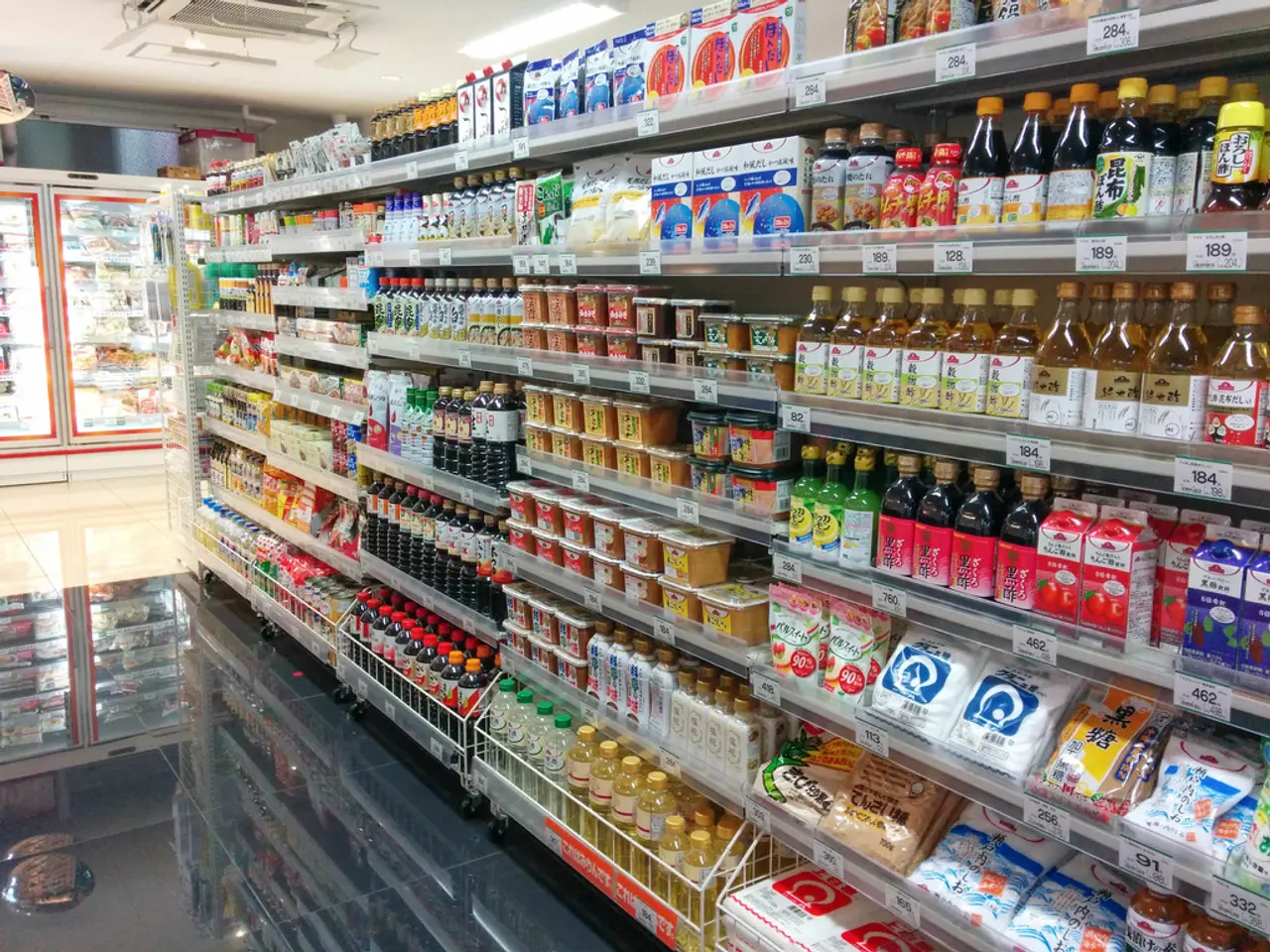Budget-friendly British supermarket leader shifts as Aldi surrenders top position after nearly 20 months
In a surprising turn of events, Lidl has dethroned Aldi as the UK's cheapest supermarket, marking the end of Aldi's near two-year reign. According to a recent study conducted by consumer group Which?, Lidl emerged as the most affordable option for British shoppers, offering competitive pricing that has been appealing amidst economic uncertainty and inflation.
The study, which compared eight UK supermarkets, included both branded and own-brand items such as Birds Eye peas, Hovis bread, milk, and butter. Lidl's average shopping bill came in at £128.40, while the same shop at Aldi was 85p more expensive. For shoppers with a Lidl Plus loyalty scheme, they could save an additional 40p on the price of their groceries.
Aldi, however, continues to maintain a strong presence in the UK market. With its sales increasing by 6.3%, the supermarket brought its share to 10.9%, reaching double-digit market share for the first time in 2023. This growth indicates that Aldi's pricing strategies have been effective in attracting customers seeking value.
Tesco also saw a significant growth, boosting its share to 28.3% with sales growing by 7.1%. Sainsbury's followed closely behind, with sales increasing by 5.3%, putting its market share at 15.1%. On the other hand, Co-op's share dropped half a percentage point from 5.7% to 5.2%.
Asda saw a slight decline in its market share, falling one percentage point from 12.8% to 11.8%. The supermarket was the second cheapest, with the longer list costing £474.12 and cheaper than Tesco by £7.47. Ocado retained its place as the fastest growing British grocer, with sales rising by 11.7%.
The study excluded Aldi and Lidl from the comparison of bigger shops as they do not always stock all the products on the consumer group's larger shopping list. Grocery sales at M&S were 6.5% higher than a year ago, while online accounted for 12% of all sales at the grocers over the past 12 weeks, with 23% of households making at least one virtual shopping trip.
For detailed comparisons and price analyses, it's best to visit the Which? website or consult their publications directly. Shoppers at Waitrose would spend £42.51 more on the same shop at Waitrose than at Lidl with a loyalty card, a 34% increase.
In conclusion, Lidl's competitive pricing strategies have proven effective in attracting customers and securing its position as the UK's cheapest supermarket. The study serves as a testament to the power of value-driven pricing in a market where economic uncertainty and inflation continue to pose challenges for consumers.
In this market scenario, Lidl's strategic focus on affordable pricing, particularly in food-and-drink items, has assisted in capturing the UK's cheapest supermarket title from Aldi. This strategic shift in lifestyle choices, driven by financial considerations, has been a response to economic uncertainty and inflation. Additionally, the study suggests that Aldi's pricing strategies remain strong, as evidenced by its increased sales and double-digit market share, demonstrating the importance of business strategies in maintaining a strong presence.




